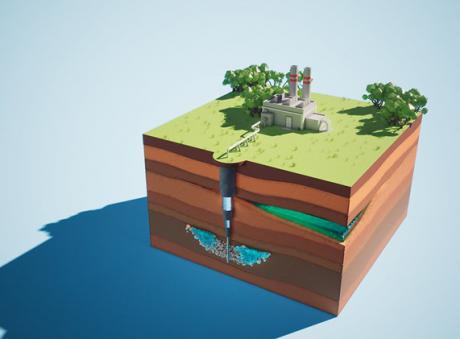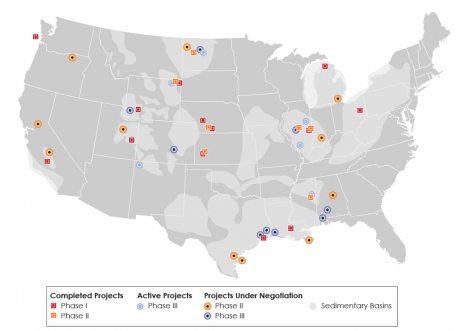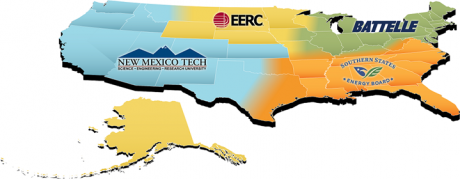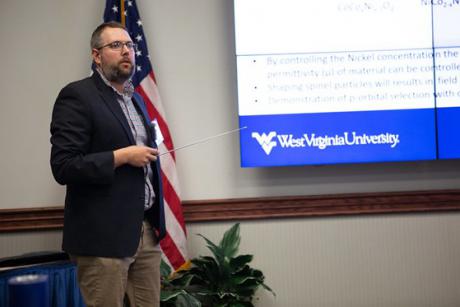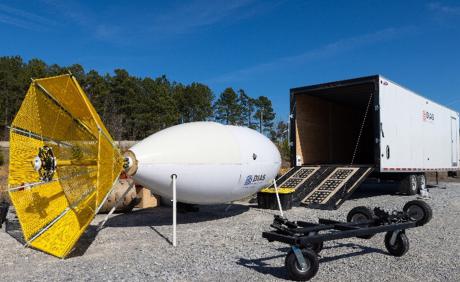Washington — The U.S. Department of Energy’s Office of Fossil Energy and Carbon Management (FECM) today announced it is making up to $27 million available through President Biden’s Investing in America agenda to support the transport of carbon dioxide (CO2) captured from industrial and power generation facilities, as well as from legacy carbon dioxide emissions captured directly from the atmosphere, to locations for permanent geologic storage or conversion to useful products.
Zanskar Geothermal and Minerals Inc. (Zanskar), with NETL support, recently concluded a project that developed a deep learning tool for subsurface monitoring that could help ensure safe storage of carbon dioxide (CO2) at geologic sites, which is critical for meeting the nation’s decarbonization goals.
The U.S. Department of Energy’s (DOE) NETL-led Carbon Storage Assurance Facility Enterprise (CarbonSAFE) Initiative has funded 24 and is currently negotiating 20 additional projects around the country to address key gaps on the critical path toward commercial carbon capture and storage (CCS) deployment. These projects are the first of many, that will de-risk geologic storage capacity across the United States (US), while initiating the storage infrastructure of the future.
Four Regional Initiatives (RIs) funded by the U.S. Department of Energy’s (DOE) National Energy Technology Laboratory (NETL) are augmenting previous nationwide efforts to identify and address challenges facing stakeholders for commercial deployment of carbon capture, utilization and storage (CCUS), a key component to realizing a decarbonized power sector and economy.
The nation’s top scientists and engineers will gather this month in Pittsburgh, Pennsylvania, for the 2023 FECM/NETL Carbon Management Research Project Review Meeting to discuss climate change mitigation research and share updates on their efforts to advance innovative solutions for a sustainable energy future.
Results from more than 150 research projects sponsored by the U.S. Department of Energy (DOE) will be discussed during the five-day meeting, which begins Monday, Aug. 28, at the David L. Lawrence Convention Center.
The University Coalition for Basic and Applied Fossil Energy Research and Development (UCFER), which was established in 2015 to promote collaboration among NETL and 15 universities, is preparing to conclude the seven-year effort, which resulted in more than $16 million of federal funding awarded to 43 research projects that significantly advanced energy research, including clean energy projects focused on developing carbon management technologies.
WASHINGTON, D.C. — The U.S. Department of Energy (DOE) today announced 16 projects across 14 states are set to receive $23.4 million to provide locally-tailored technical assistance and enhanced stakeholder engagement around carbon management technologies. The projects, housed at both universities and private sector companies, aim to connect carbon management developers with local communities to foster collaboration and education toward the advancement of commercial deployment of carbon capture, transport, and storage technologies across the United States.
Supported with funding from President Biden’s Bipartisan Instructure Law (BIL), NETL’s development of computational models and software applications are poised to accelerate the commercialization of technologies to safely inject and store hundreds of years of carbon dioxide (CO2) in the subsurface.
A team led by NETL researchers recently launched airborne technology at a commercial-scale carbon dioxide (CO2) geologic storage site in Mississippi to complete a first-of-its-kind electromagnetic survey and collect data needed to monitor greenhouse gas sequestered in the subsurface.
The U.S. Department of Energy’s (DOE) Office of Fossil Energy and Carbon Management (FECM) and National Energy Technology Laboratory (NETL) announced up to $45.5 million in funding available to advance carbon dioxide (CO2) capture technologies and help establish the foundation for a successful carbon transport and storage industry in the United States.





